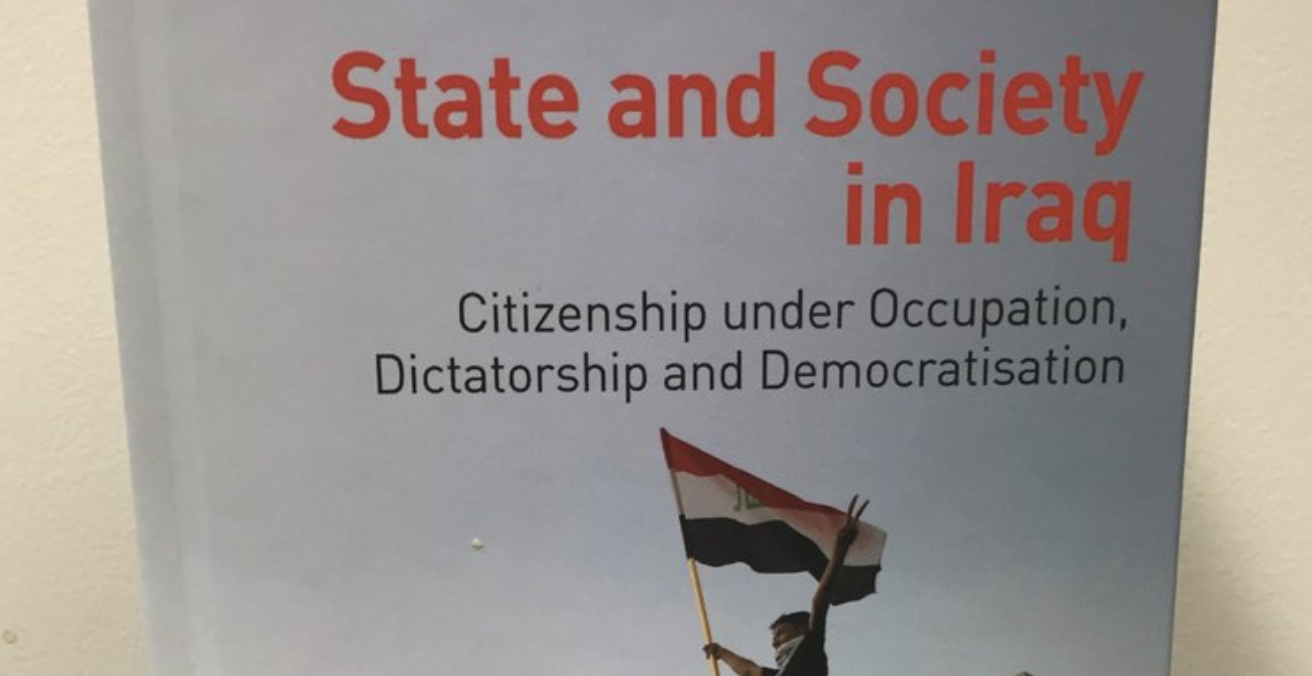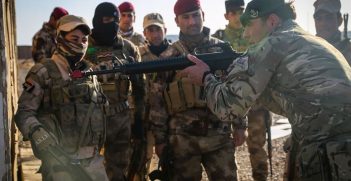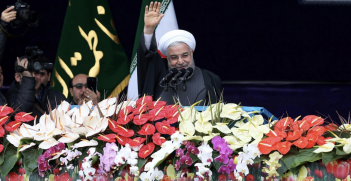Reading Room: State and Society in Iraq

Benjamin Isakhan, Shamiran Mako and Fadi Dawood’s edited collection State and Society in Iraq: Citizenship Under Occupation, Dictatorship and Democratisation is a timely volume reminding us of the dynamism and long-standing activism of Iraq’s diverse constituencies and their historical and ongoing resistance to state dictates.
State and Society in Iraq: Citizenship Under Occupation, Dictatorship and Democratisation, edited by Benjamin Isakhan, Shamiran Mako and Fadi Dawood, is an extensive volume arguing that we should take the “long view” on Iraq’s evolution and reconstruction as a state. As such, the volume entails a longitudinal historical examination of a multitude of topics, ranging from British policies in the Assyrian Ba’qubah Refugee Camp from 1919-1922, to the role of student protestors during the late 1950s and early 1960s, and culminating in the US invasion of Iraq and rise of the Islamic State group. Overall, the volume succeeds in providing a wealth of information across a vast array of subjects.
The volume advocates for a “bottom-up” understanding of state-society relations. This is important because there is often a substantial disconnect between top-down analyses – for instance, driven by the international fixations on sensationalist geostrategic competition and the scourge of terrorism – and the lived experiences and ongoing struggles of Iraq’s mosaic of diverse communities.
I, incidentally, completed my examination of the volume while visiting the Kurdistan Region of Iraq, during which the gap between the hifalutin rhetoric featuring in international fora (for example, the press and politics) and the everyday struggles faced by regular people became readily apparent. It is this gap that the volume seeks to address by examining the diverse array of societal actors that have historically sought to shape the relations between state and society in Iraq.
In line with the volume’s call for a “bottom-up” approach to analysing state-society relations in Iraq, early chapters use micro-level case studies to draw macro-level conclusions. The connections between the micro- and macro-levels, however, are not always convincingly made. This is not to say the conclusions drawn are incorrect, but the linkages could be more robust. It is also not entirely clear sometimes how some of the later chapters examining more contemporary issues, whilst informative, are underpinned by this “bottom-up” approach.
In my view, the best chapters are those by Kalisman and al-Marashi examining the competing visions of education policy and the role of the army respectively, during the British occupation and the (imposed) monarchy from the 1921 until the 1958 revolution.
The chapters detail the respective struggles that occurred between the British, the monarchy and Iraqi nationalists over control of education and the army. In short, the British envisioned that the education system and army would serve imperial interests. As such, they initially tailored the education system to focus on vocational training to supply low-level bureaucrats to ensure the functioning of the imperial administration (under the guise of the monarchy), albeit devoid of nationalist impulses, whereas the army acted as an internal enforcer of order rather than the protector of the people.
In the face of increasing local resistance, the British gradually loosened their grip on the education system. As education expanded, however, it led to the creation of strata of educated unemployed, which, in turn, resulted in increased societal agitation. Increased Iraqi control also led to the militarisation of the education system. The legacies of the use of the army as an internal enforcer and the militarisation of the education system are all too evident in the repeated instances in Republican Iraq where the Iraqi army has acted as the persecutor rather than the protector of Iraq’s diverse communities.
Also of note, are Baram’s chapter exploring the Ba’ath regime’s tempestuous relationship with Islam and Helfont’s investigation of the regime’s penetration of Shi’a institutions.
First, Baram details the early scepticism of the quasi-socialist Ba’athist regime vis-à-vis the societal utility of Islam in the modern era, with the party employing rhetoric verging on atheism. Later, however, facing a crisis of legitimacy, the Ba’athist regime executed a neat volte-face by positioning Ba’athism as authentically Arab and, therefore, intrinsically linked to Islamic civilisation.
Second, Helfont’s examination of Ba’athist archival material sheds new light on the extensive Ba’athist penetration of Shi’a seminaries. This is in marked contrast to many previous works asserting the independence of Shi’a institutions during the Ba’athist era.
Overall, this is a timely volume reminding us of the dynamism and long-standing activism of Iraq’s diverse constituencies and their historical and ongoing resistance to state dictates. An examination of the “long view” also reminds us that the evolution of state-society relations is a slow process that requires patience and may take considerable time to come to fruition.
Despite the bleak picture often painted in the international media, the volume reminds us that history is not static – it does not stand still – societal resistance continues and, with it, so does hope for the future of Iraq.
Benjamin Isakhan, Shamiran Mako and Fadi Dawood (Eds.) State and Society in Iraq: Citizenship Under Occupation, Dictatorship and Democratisation, (London: IB Tauris, 2017)
Dr Tristan Dunning is an adjunct research fellow and teaching instructor at the University of Queensland. He is the author of Hamas, Jihad and Popular Legitimacy: Reinterpreting Resistance in Palestine.
This article is published under a Creative Commons License and may be republished with attribution.





